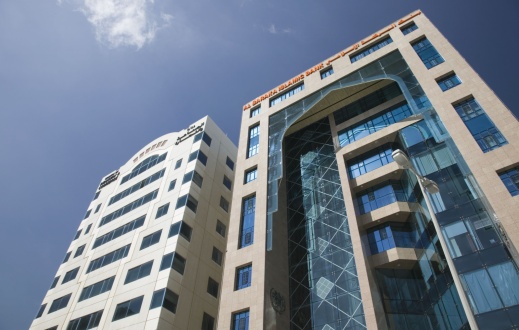Bahrain’s Al Baraka Islamic Bank Sees New Scope To Expand
The bank’s growth in 2014 will be fuelled by the company’s entry into the Moroccan and Libyan markets and expansion in Tunisia.

Bahrain-based Islamic lender Al Baraka expects at least 15 per cent growth in net profit this year as its business recovers across a region hit by the Arab Spring unrest, its chief executive said.
The growth will also be fuelled by the company’s entry into the Moroccan and Libyan markets and expansion in Tunisia as monetary authorities become more welcoming to Islamic banking.
The bank, which has operations across the Middle East, Asia and Africa is due to announce a double digit increase in 2013 profits, driven by overall growth in core business and a 15 per cent rise in lending, chief executive Adnan Ahmed Yousif said.
“Last year was a very good year for all our subsidiaries with an increase in profits. In 2014 we expect our profits to also increase in double digit. At least 15 per cent rise,” he told Reuters in Amman.
Al Baraka’s operations in Arab countries, in Egypt and Tunisia and even Syria had appeared to have shrugged off some of the worst impact of the political crisis, Yousif said, referring to the revolts that began in Tunisia in late 2010 and spread.
“They are coming back to normal. Political factors have already been factored in,” Yousif added.
OPEN TO BUSINESS
In Tunisia, where pre-uprising banking laws discouraged Islamic banks, Al Baraka got the central bank’s approval at the end of last year to transform its offshore business to onshore in a move that would accelerate growth.
The bank plans to open at least another 15 branches in the next two years in the north African country, where it has 10.
“In Tunisia, the central bank are now open to business for Islamic banks,” said Yousif.
In Syria, where the bank has 10 branches, it has not been able to expand operations since the 2011 start of the civil war. But its operations have not suffered a growing non-performing loan problem like that at other foreign banks, Yousif said.
Yousif said he was optimistic operations in the potentially lucrative Libyan market, where the bank opened a representative office in 2011, would get going this year while in Morocco new pro-Islamic banking rules could allow it to get a licence.
“In Morocco, they smoothed their regulations for Islamic banks. We are hopeful this year,” he added.
The bank’s fast growing 30-branch Algerian subsidiary had now captured nearly 5 per cent of the country’s foreign trade business and plans were under way for further expansion.
Yousif said that Al Baraka bank’s Egyptian operations were due to announce 140 million Egyptian pounds ($20 million)in net profits for 2013, a 12 per cent increase from the previous year with the balance sheet growing by 20 per cent, despite the political turmoil.
“We were not impacted because we took a decision to focus on small and medium size lending and not to lend to companies with political influence,” he said.
The lender hopes to expand its global branch network from a current 480 to around 560 branches by end of 2014, with half of the 84 new branches opened in Turkey and Pakistan.
The bank’s Turkish unit, Albraka Turk, its largest single operation, was due to announce a 15 per cent increase in 2013 net profit to $110 million against the previous year, Yousif said.
He said it had more than 40 per cent of the Islamic banking market in Turkey, which itself makes up about 11 per cent of the total banking market.
Albaraka Turk, one of Turkey’s four Islamic banks, hopes to issue between $300 million and $400 million worth of sukuk this year, potentially doubling its 2013 issuance.
Al Baraka, in contrast with its peers in the Gulf, has built the bulk of its business outside the region. The focus of expansion remains fast growth areas in the Middle East and Asia such as Pakistan and Indonesia.
“The Gulf is overbanked,” Yousif said.
